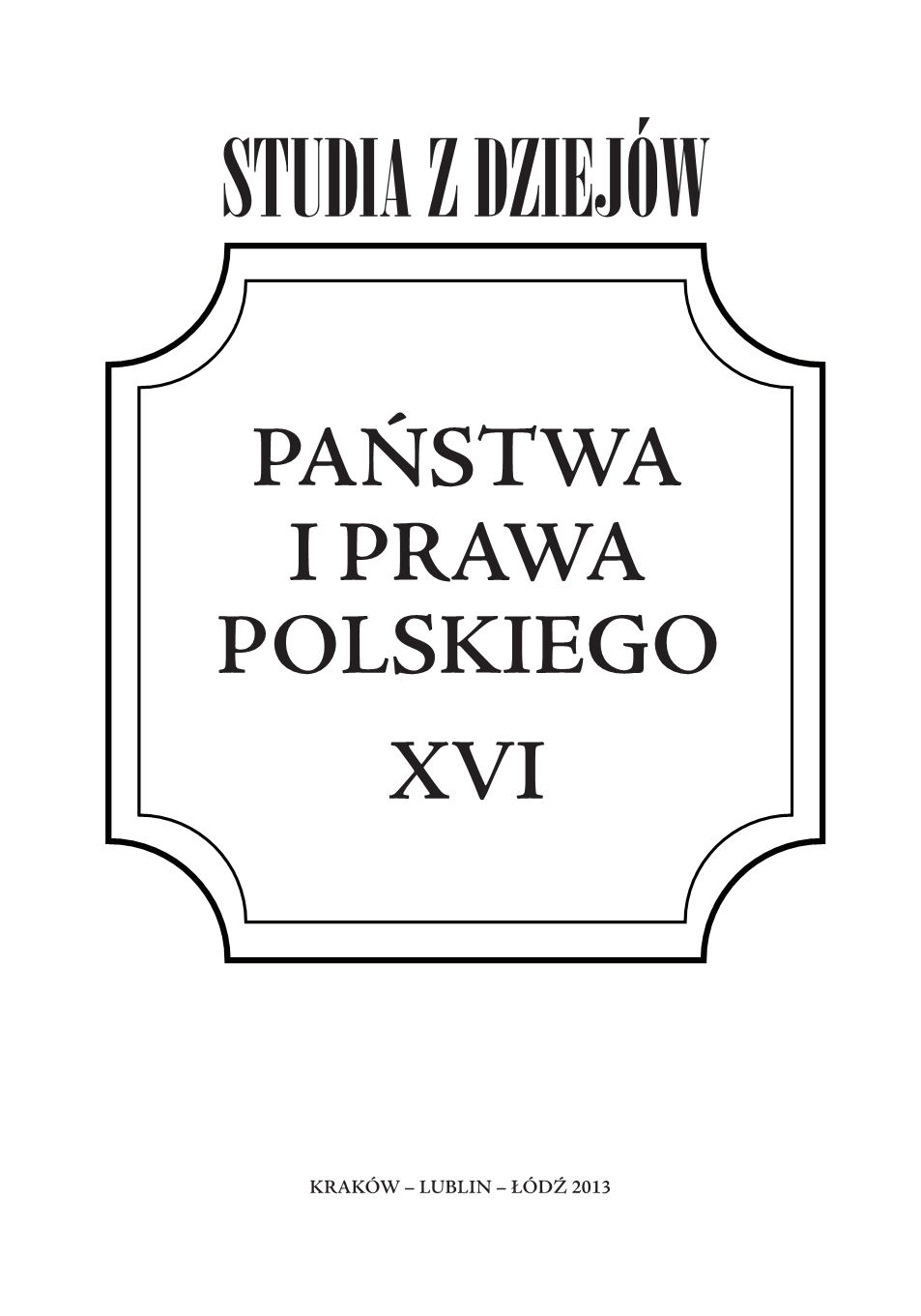Reformy austriackiej procedury karnej w dobie Wiosny Ludów
Reforms of the Austrian criminal procedure during the Spring of Nations
Author(s): Krzysztof KrauzaSubject(s): Criminal Law, 19th Century
Published by: Oficyna Wydawnicza KA AFM
Summary/Abstract: The article presents the beginning of the development of the mixed criminal trial emanating from the projection of the 19th-century liberal thought. References are made to Franciscana (1803), which included progressive elements (e.g. replacement of torture by punishment for insubordination, negative theory of formal proofs, collegial issuing of the ruling, and a ban on reformationis in peius). Further changes in the criminal procedure resulted from Art. 103 of March Constitution (1848), which based court procedure on the principle of openness and orality. Moreover, Art. 103 introduced the institution of the public prosecutor and the jury. The first reformed code of criminal procedure was developed on 17th January 1850. The return of absolutist government in Austria brought about the publication of a new criminal act in 1853. The new code returned to the principles of Franciscana and reintroduced the process of inquisition in courts, yet in an augmented version. The offices of the prosecutor and the legal community were set up, and the defendant became the subject of the criminal trial.
Journal: Studia z Dziejów Państwa i Prawa
- Issue Year: XVI/2013
- Issue No: 1
- Page Range: 225-243
- Page Count: 19
- Language: Polish

